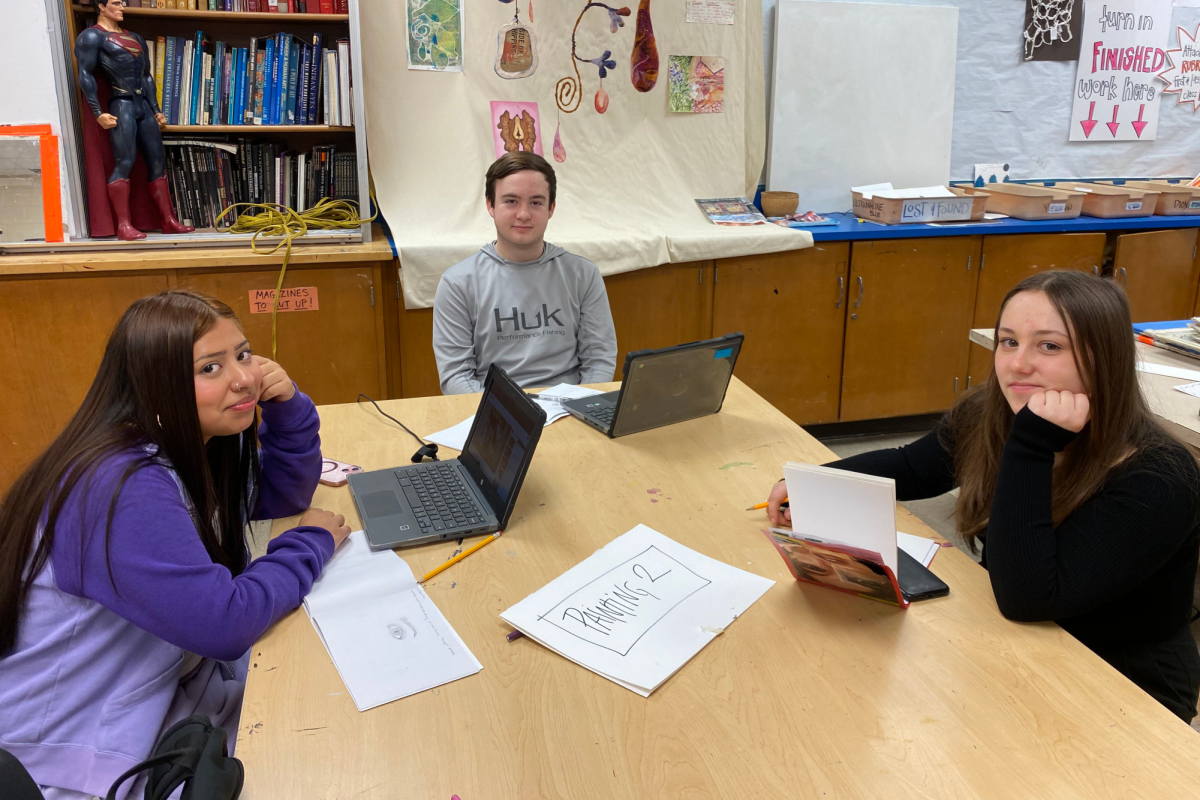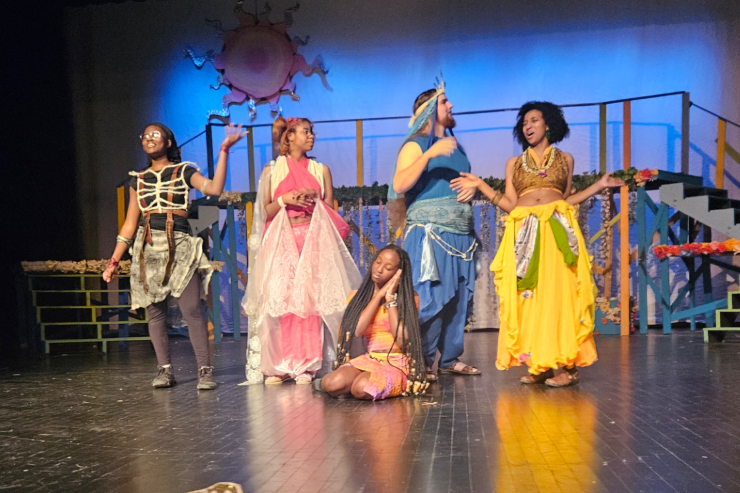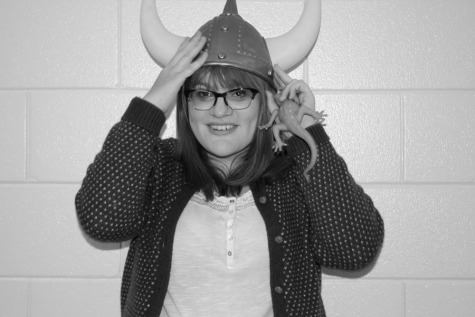“If I don’t get into art school I’ll probably wait a year and audition again the next year, because I don’t have any backup plan,” said junior Kellie Asher. “I want to do music as a career and I have no idea what I would do if I couldn’t.”
“I’ve been singing for my entire life and I’m very interested in music theory,” said Asher. Her dream is to go to college for music education.
Part of the college admissions process for a student like Asher is a performance-based audition. “You can’t just write an essay saying how good you are at it,” said Asher. “You have to prove that you are, in fact, a skilled musician. It’s like how you prove your academic skills with your grades, you prove your music skills through performance.”
Asher is already preparing for her college auditions, “You should be practicing auditions, auditioning for everything just to get used to the process.”
Sylvia Reilly, a senior, went through that same process earlier this year, and plans to attend the University of Minnesota to double major in vocal performance and musical therapy.
“I had gotten invited for a live audition at the U of M, it was the best audition I’ve ever done in my life, it went really well. ” Reilly described. “Part of that was I was thinking ‘I’ll probably go to St. Olaf.’ I wasn’t putting a lot of pressure on myself. Well, I got home from that audition and opened a letter from St. Olaf saying I did not get invited for a live audition. It’s a big disappointment, but I feel really lucky that I did not get that letter before my U of M audition, because that would have been my last shot.”
“I’ve always loved [singing] but it took me a really long time to get to the point where I was willing to commit to that as a career,” Reilly continued. “Because that’s a scary thing to do. It comes down to that I can’t imagine not having art constantly in my life,” she said.
When Asher is considering where she wants to audition, the concerns may not be those that most students need to take into account. She needs to think about the reputation, quality, and cost of different programs, as most would. However, its also important to “meet with the professors beforehand . . . figure out who you want to be taught by and who you’re comfortable with and who you think their teaching style is fitted to your learning style,” she said.
A career in the arts may cause the potential for financial instability, or difficulty finding employment.
Debt can also be especially scary for music students. “When you’re going into music, and you’re guaranteed starting salary is zero you can’t afford to have debt,”said Reilly. However, there are ways to make your arts degree work.
“Try to find something you could do with your degree where you could earn a living. Find a balance,” South counselor Marie Hassell advised.
Practicality is part of what led Asher to pursue a career in music education, rather than performance. “If I wanted to do musical performance that would be really difficult because it’s always if I get famous or if I get a contract,” she said. “[In] music education I’ve heard you get jobs pretty quickly . . . I hope I get a job, but apparently it’s easier than performance.”
Reilly has considered this as well, and it is one of the reasons she plans to study musical therapy. “I’m lucky because I love the idea of music therapy so for me it doesn’t feel like a back up, it just feels like something that goes along with the rest of my career,” she said.
Reilly says there can be a perception that studying art or music is not rigorous as an academic subject. “There’s just a general feeling of less value, not doing something as smart, or taking the easy way out,” she said.
On the contrary, music presents unique challenges that are not present in many other fields. “Something that terrifies me is that I want to do my own music and perform, but there’s no real route for that. In a lot of fields I’d have an idea,” Reilly said. “There’s no person standing by saying here are the requirements . . . That’s something that a lot of people don’t understand, that it takes a lot of work.”
Asher said that her dad, who is currently studying to be a church musician, tells her “just treat it like school, don’t treat it like ‘oh, it’s music I can blow this off.’ It’s still difficult and you’re still going to have classes you don’t like.”
Asher said that experience at a music camp mimicking the college experience drove this point home for her. “You had to practice every single day and then you had to go to your music theory class, and it was difficult. You had to study… as much as it was challenging, I really liked it,” she said.
Music presents this challenge for many students, while allowing them to express themselves through a medium they feel passionate about. Though the prospect of auditioning or not being able to find a career may be discouraging, students who prepare can appreciate the advantages offered by studying art. “If I don’t do this I’ll regret it for the rest of my life,” said Reilly. “If I do it and fail, at least I tried.”







